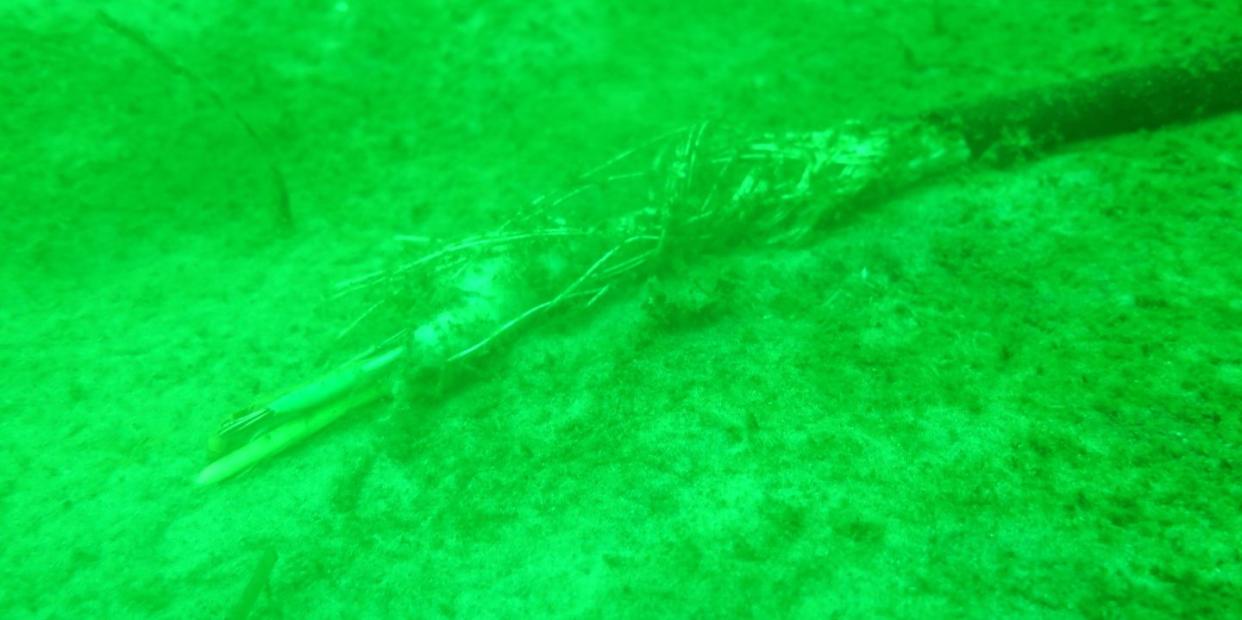So...Why Did This Underwater Data Station Suddenly Just Disappear?

A $330,000 underwater observatory has gone missing from its location off Germany’s Baltic coast.
After it stopped transmitting last month, divers were sent to investigate and found only a shredded cable in its place.
Too heavy to be dragged by currents or tampered with by animals, researchers said in a statement that they suspect foul play.
A deep-sea mystery is swirling off Germany’s Baltic coast. A $330,000 underwater observatory disappeared this week, seemingly ripped from the bottom of the ocean. Divers sent to investigate snapped a picture of the sole piece of evidence: the gnarled cable to which it was attached, shown above.
The Boknis Eck observatory was established in 2016 and was operated by the GEOMAR Helmholtz Centre for Ocean Research Kiel, a marine research institute located in the German port city Kiel, and the Helmholtz Center Geesthacht, Germany’s largest scientific organization. Various instruments attached to the observatory actively monitored changes in temperature and salinity and tracked concentrations of certain elements in the water.
"The data we get from it is priceless," GEOMAR head of oceanographic research Hermann Bange said in a statement released by the institute.
The observatory sent its final signal to GEOMAR scientists at 8:15 p.m. on August 21. Divers dispatched to Eckernförde Bay to search for clues quickly discovered the torn cable 72 feet below the surface, just 1.2 miles offshore, according to the BBC. Researchers say the observatory, composed of two racks each weighing roughly 550 kg and 220 kg, was far too heavy to have been dragged away by an animal or swept up by currents. Further raising suspicions, the observatory was set in restricted waters, accessible not even to local fishers.
Conducting science at the bottom of the ocean is no small feat, and this isn’t the first time an experiment has gone awry. Looters frequently trawl waters for sunken ships to pilfer from, and Somali pirates have kept scientists from collecting valuable data at sea. In 1929, an underwater landslide caused by a 7.2 magnitude earthquake in Newfoundland, Canada snapped 12 trans-Atlantic cables that stretched across the sea floor.
Source: BBC
You Might Also Like

